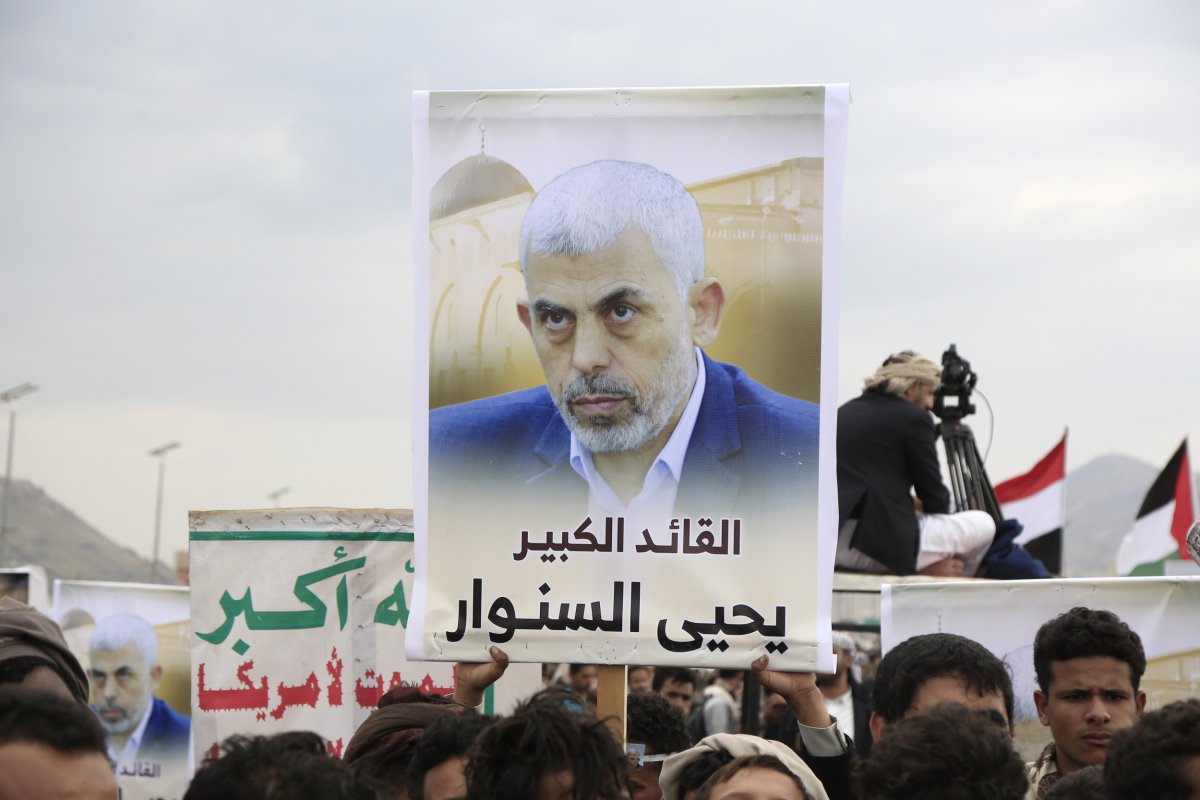Israel's successes in recent weeks open the door to a genuinely game-changing Pax Americana in the Middle East. That is if the United States is ready to put politics aside and simply take the win in the immediate aftermath of the Nov. 5 election.
For years, the music coming out of Washington (and most European capitals) has been the tune typically heard from the State Department: avoid escalation, always seek a ceasefire, try to reach a deal. This is usually a good idea, but not when one is dealing with determined enemies. At such times, determined action is needed instead.
For decades, Iran's theocratic despotism has held a death grip on the region via proxy armies and the constant threat to attain a nuclear weapon that would render it inviolable. One of its main levers has been the Lebanon-based Hezbollah, which it armed with tens of thousands of long-range missiles able to so harm Israel that, it was assumed, the entire world would be deterred.

The past year has been such a shock to everyone's system that Israel, at least, has lost all fear. And in the past several weeks it has decapitated both Hezbollah and its sister Iranian proxy, the Palestinian terrorist group Hamas, and degraded their fighting force to such a degree that Iran's deterrence is in tatters. Adding to that is the fact that Iran on Oct. 1 executed history's largest-ever ballistic missile attack—about 180 rockets fired at Israel—to almost no effect.
Israel is now preparing to strike back at Iran, just as the U.S. election hangs in the balance. The Middle East war has become pivotal in the U.S. presidential election because of America's bizarre electoral system: If Biden's policies upset just a few thousand Jewish voters in Pennsylvania or Muslims in Michigan, Vice President Kamala Harris could lose both, likely securing a win for former President Donald Trump.
That means President Joe Biden and Harris need the war to be invisible to voters for the next few days. There is a deal to be done here, below the radar: Israel stays its hand in exchange for America's agreement to execute a paradigm shift on Iran after the election. The U.S., at last, would end it's shameful policy of appeasement of Tehran.
There are many reasons not to help Israel on Iran. The West is tired of Middle Eastern misadventures after the Iraq and Afghanistan debacles; Israel's rightist government is blocking any diplomatic progress in Gaza, despite military successes; and, of course, Israeli Prime Minister Benjamin Netanyahu, a schemer and a criminal defendant, is personally toxic to much of the world, perhaps Biden especially.
Indeed, there is no love lost between the Democratic administration and Netanyahu, who clearly prefers a Trump win (Trump won't hassle him with humanitarian quibbles). It makes Netanyahu look like an ingrate, because his country depends on U.S. munitions and diplomatic cover, and has received plenty of both over the past year, since the Iran-backed Hamas sparked the war with its massacre of 1,200 Israelis on Oct. 7, 2023.
It will annoy many people to hear it, but despite the awfulness of Netanyahu he is absolutely right about Iran. Moreover, most of the Arab leaders know it—even if much of their agitated "street" does not. They have been secretly applauding Israel's successes, hoping for a decisive blow, and would love for the Democrats to ensure they get it.
What makes Netanyahu right?
Iran is a Muslim theocracy but not an Arab country. It trains, funds, and arms an array of militias throughout the Middle East. Hezbollah and the Houthis have taken over much of Lebanon and Yemen respectively; Shiite militias have rendered Iraq unstable; Iranian military support has kept Syria's dictator Bashar Assad in power; Iran-backed radicals now threaten the stability of Jordan; and Iran threatens the oil interests of the Gulf states as well.
If anyone is confused about how all this threatens the West, they should consider that the Iran-backed Houthi militia has been attacking commercial ships trying to reach the Suez Canal for a year, impeding much of global container traffic, helping to raise prices around the world. They also caused a war in which almost a half-million Yemenis have died in recent years.
The Sunni Arab governments would welcome a Western move to compel Iran to drop this project along with its nuclear weapons program. This can't be mere saber-rattling. The cataclysm of the past year has shown pretty clearly what happens when this kind of geopolitical cancer is not treated.
It would be a favor to the Lebanese especially, whose potentially lovely country has been trashed by Hezbollah. It would also be welcomed by most Iranians, whose civilization is being dragged through the mud by the ayatollahs who hijacked the country 45 years ago.
And even if America doesn't want more foreign entanglements, it also doesn't want Iran having nuclear weapons or being nuclear-adjacent. This is a discussion that will have to happen soon, and the new wrinkle is that Iran's proxies have been devastated by Israel to a degree that focuses the mind.
Two events, both tactical and symbolic, have happened in the last 30 days: Hamas leader Yahya Sinwar was killed in Gaza, and Hezbollah leader Hassan Nasrallah perished in a targeted bombing in Beirut. Both were iconic leaders in terrorism-world, and their exits—combined with the degradation of both their groups—offer Israel a clear victory narrative. Even the recalcitrant Netanyahu cannot fail to miss it.
If handled right, this is also a moment brimming with promise, more perhaps than at any time in recent memory. This is true regardless of the outcome of the Nov. 5 contest.
There are benefits to giving Israel what it wants on Iran, beyond that it is what the region largely wants as well, and what the world should want.
In exchange for this paradigm shift , plus an arrangement pacifying its border with Lebanon, Israel would probably end the war and work with the world on a constructive day-after-Hamas plan in Gaza. The removal of Sinwar from the scene, ensuring no victory narrative in which he survives the war, greatly enhances the likelihood of this.
With any luck, the U.S. could also arrange the inclusion of Saudi Arabia in the Abraham Accords. This would require Israel to reenter talks on a Palestinian state, which seems unlikely with Netanyahu's coalition.
But the devastation of the past year has created such shock that previously impossible compromises may become possible. For example, the Palestinians agreeing to demilitarization; or Israel agreeing to recognizing Palestine even without an end to all the Palestinians' demands; or the Israeli opposition joining Netanyahu, freeing him of far-right obstructionists.
There are a lot of moving parts here, but there is an additional huge incentive for the Democrats: There is a definite scenario in which this hastens political upheaval in Israel, where the new approach would be hugely popular. Netanyahu, who has a Winston Churchill complex, could end up like his hero, winning the war and binned in its wake.
Pie in the sky? Biden will not become a two-term president, but engineering the end of Netanyahu may just be consolation enough.
Dan Perry is the former Cairo-based Middle East editor and London-based Europe/Africa editor of the Associated Press, the former Chairman of the Foreign Press Association in Jerusalem and the author of two books. Follow him at danperry.substack.com.
The views expressed in this article are the writer's own.



















:quality(85):upscale()/2024/04/24/878/n/3019466/36c5693c662965c5d1ce91.72473705_.jpg)
 English (US) ·
English (US) ·